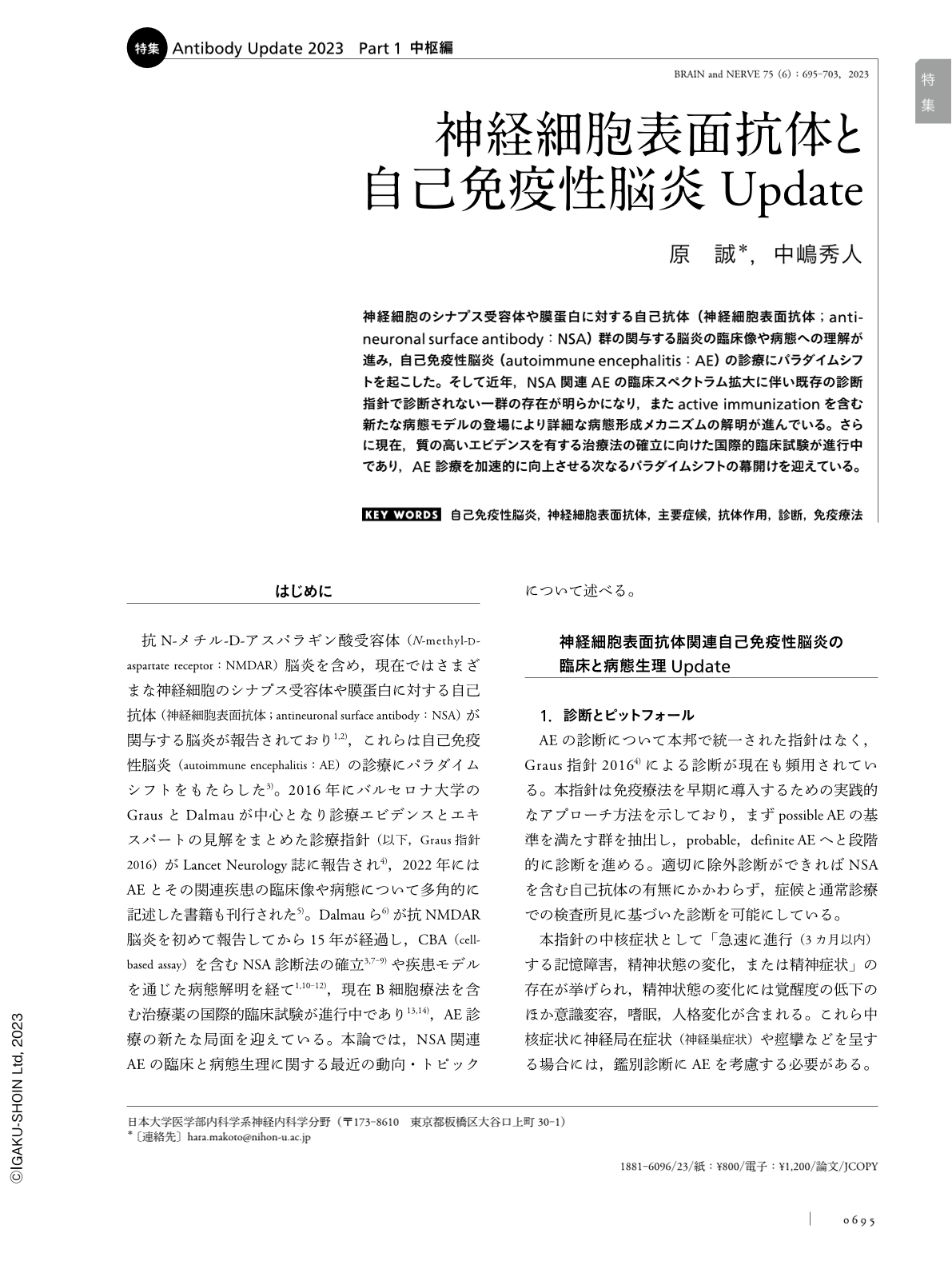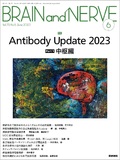Japanese
English
- 有料閲覧
- Abstract 文献概要
- 1ページ目 Look Inside
- 参考文献 Reference
神経細胞のシナプス受容体や膜蛋白に対する自己抗体(神経細胞表面抗体;antineuronal surface antibody:NSA)群の関与する脳炎の臨床像や病態への理解が進み,自己免疫性脳炎(autoimmune encephalitis:AE)の診療にパラダイムシフトを起こした。そして近年,NSA関連AEの臨床スペクトラム拡大に伴い既存の診断指針で診断されない一群の存在が明らかになり,またactive immunizationを含む新たな病態モデルの登場により詳細な病態形成メカニズムの解明が進んでいる。さらに現在,質の高いエビデンスを有する治療法の確立に向けた国際的臨床試験が進行中であり,AE診療を加速的に向上させる次なるパラダイムシフトの幕開けを迎えている。
Abstract
Since the discovery of a series of antineuronal surface antibodies (NSAs), the diagnostic approach and management of patients with autoimmune encephalitis (AE) and related disorders have undergone a “paradigm shift.” However, recent topics described below are also announcing the dawn of the next era in the practice of patients with AE. As the clinical spectrum of NSA-associated AE expands, some types of AE (e.g., anti-DPPX antibody-associated and anti-IgLON5 antibody-associated disorders) can be misclassified into reconsider diagnosis when using the previously published diagnostic criteria. Nobel active immunization animal models of NSA-associated disorders (e.g., anti-NMDAR encephalitis model) can remarkably emphasize the understanding of the pathophysiological effects and main syndrome induced by NSAs. Additionally, several international clinical trials (e.g., rituximab, inebilizumab, ocrelizumab, bortezomib, and rozanolixizumab) for AE treatments, including anti-NMDAR encephalitis, have been implemented. Data from these clinical trials can be used to establish the best treatment of AE.

Copyright © 2023, Igaku-Shoin Ltd. All rights reserved.


